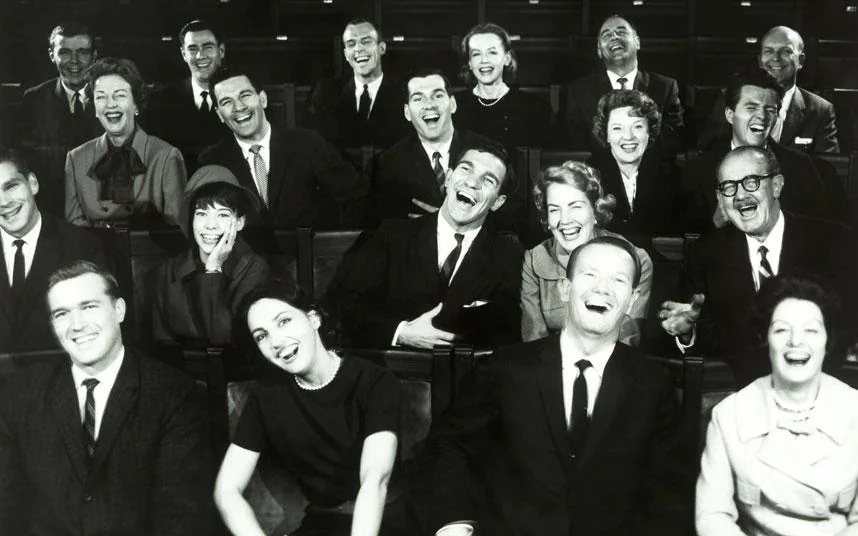A stand-up comedian tells a joke at the audience’s expense regarding their sexism. She quickly turns it back on herself, explaining that, despite her feminist credentials, she continually finds herself competing with other women for male attention. Her set continues in this
formula: every joke at our expense is tempered with one at her own.
Self-deprecating humor is in vogue among stand-up comedians. In her award-winning show Nanette, Hannah Gadsby foregrounded and criticized this tendency, arguing that it can be crushing for older queers who grew up with self-hatred. What is the appeal of self-deprecating humor? Where did it come from and why does it have cultural currency?

Self-deprecating humor is a relief. There’s something cathartic about it, about finally throwing one’s hands up in the air and admitting failure. Perhaps it disarms negative self-talk by laughing at it. And the very fact that others find this funny, that they can relate to it, demonstrates that failure is ubiquitous. Knowing that it’s not just me who fails, that we all do, can lessen shame and ultimately be therapeutic.
If this is true, then failure resonates with large swathes of the population. Otherwise, comedians wouldn’t keep using it. Why is that? Is it because of financial failure? Because of the recessions brought on by the 2008 financial crisis and covid-19 pandemic, large swathes of privileged people have joined the poor in failing to meet middle-class standards of success. Many twenty and thirtysomethings were raised to expect a higher standard of living and economic success than they are currently experiencing. They probably feel like failures.
But stand-up comedians don’t usually work financial failure into their material. The thread of failure running through stand-up comedy is more about conforming to an ideal. Everywhere in comedy, there is a vaunted behavior, identity, or type that one should live up to, but does not: the good feminist, Gadsby’s archetype of the good lesbian, etc.
Stand-up comedy’s self-deprecating style is a way that generations of people are processing and working through the inhumane demands of ideology. Ideology demands that we, soft and round beings fit ourselves into its sharp, 90-degree angle shapes. It rests on a worldview that holds each individual to be a rational, self-direct agent capable of directing their actions solely based on “should” arguments. Those “should” arguments can be intellectual, moral, ideological, etc. This worldview presents this agent, call it a soul for shorthand, as rationally observing its conditions and making decisions from which they then act. It decides to do X, Y, and Z because those, the soul has decided, are the correct activities.
But no, the stand-up comedians exclaim, that’s not how my life is. I know I should do X, Y, and Z, but I find myself doing A, B, and C instead. The comedian is admitting that the soul has fucked up, it didn’t do what it was supposed to do. Instead, it did other things even when it knew that those things were the wrong things. They explain this in a quick story and the audience laughs, they know what this is like, they have experienced this as well.

What’s happening here is that our culture is processing the fact that each of us is not a rational soul with agency that decides to do things because they are the correct thing. We are composed differently, we are something else. We are not like a video game player who uses a controller to direct the avatar on screen, able to continually press A and make them jump endlessly.
Perhaps the agency we’ve granted to this conscious “I” is exaggerated, and ultimately a flawed ideology that fails to explain how we, and the world, truly work. Perhaps we do things because of motives grounded in needs, attachments, discourses, and flows of affect, rather than the conscious I, or soul. Stand-up comedy doesn’t pretend to have the answers, and neither should I, but it appears to be signaling that an old way of viewing the world is no longer suitable, and maybe never was.
Pingback: Comedy and the Cathartic Decline of Agency – 🏴 Anarchist Federation